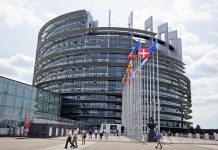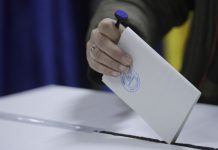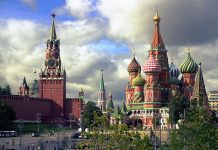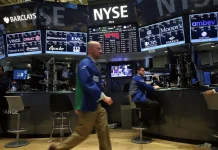Romania holds its first round of presidential elections on Sunday, days after the East European country got its fourth premier in three years amid ongoing political uncertainty.
Incumbent Klaus Iohannis, who formerly led the center-right Liberal party, looks set to be re-elected. He is seen as “a safe air of hands” but does not generate great passions as a politician.
However, he is unlikely to win a majority in the first round, and the real question is who he will face in the runoff.
Ex-premier Viorica Dancila, of the Social Democratic party which has governed Romania longer than any other party since communism ended, needs to get into the second round or face the disappearance of the party as a significant political force.
Dan Barna of the progressive urban group Union to Save Romania, is also hoping to get into the second round.
Polls have been unreliable amid political uncertainty caused by the collapse of the Social Democrat government. Fourteen people are running for president.
Actor-turned-politician Mircea Diaconu, a dark horse candidate who gets support from some Social Democrats and their allies and even some Liberals is also credited with a chance.
The Social Democrats, who are arguably not true Social Democrats in the European sense, swept to power in late 2016 with more than 45 per cent of the vote in parliamentary elections, but a contentious judicial overhaul sparked a period of political upheaval. In 2017, public anger over the proposed reforms brought the largest crowds to the streets since 1989.
In the past three years, Iohannis has regularly criticized the Social Democrats and their efforts to weaken efforts to root out high-level corruption. Iohannis is seen a source of stability during years of political uncertainty.
Dancila, who was ousted on October 10 in a no-confidence vote, and her Social Democrats, apparently said it was “almost existential” to make it to the second round.
The Social Democrats clashed repeatedly with the EU over threats to the rule of law. In a further embarrassment, the party won just 22 % cent at the European elections in May, and its leader Liviu Dragnea was jailed for corruption the next day.
Even after the elections, Romania faces a period of political uncertainty. The minority Liberal government needs to approve a budget and try to access European funding that has been delayed.
If Iohannis wins, he may call early elections, which would be the first in Romania’s history.


















